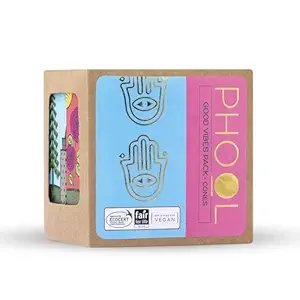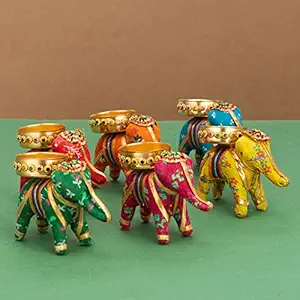परिचय: पोंगल एक महत्वपूर्ण हिंदू त्योहार है जिसे मुख्यतः दक्षिण भारतीय राज्य तमिलनाडु में मनाया जाता है। यह एक बहु-दिवसीय त्योहार है जो फसल की कटाई का मौसम और सूर्य देवता, सूर्य के प्रति समर्पित होता है। यह त्योहार आमतौर पर 14 से 17 जनवरी तक मनाया जाता है और इसमें विभिन्न पारंपरिक रीति-रिवाजों और अनुष्ठानों की शुरुआत होती है।
ऐतिहासिक महत्व:
- फसल उत्सव: पोंगल एक प्रमुख फसल उत्सव है जो फसल की कटाई के मौसम के अंत की खुशी मनाता है। यह सूर्य देवता को धन्यवाद देने का समय है जिन्होंने अच्छी फसल के लिए आवश्यक ऊर्जा प्रदान की। शब्द "पोंगल" का अर्थ है "उफनना" और यह त्योहार के दौरान तैयार किए जाने वाले पारंपरिक व्यंजन को संदर्भित करता है।
- सांस्कृतिक परंपराएँ: यह त्योहार तमिल संस्कृति में गहराई से निहित है और सदियों से मनाया जाता है। यह कृषि के महत्व और जीवन के समर्थन में प्रकृति की भूमिका को दर्शाता है.
सांस्कृतिक महत्व:
- धार्मिक अनुष्ठान: त्योहार में विभिन्न धार्मिक अनुष्ठान शामिल होते हैं, जिसमें सूर्य देवता को पोंगल व्यंजन का भोग अर्पित करना शामिल है। घरों की सफाई और सजावट की जाती है, रंगोली (रंगीन फर्श डिज़ाइन) और आम के पत्तों से सजाया जाता है। मंदिरों में विशेष प्रार्थनाएँ और अर्पण किए जाते हैं।
- उत्सव: पोंगल को पारंपरिक व्यंजन जैसे पोंगल (एक मीठा और नमकीन चावल का व्यंजन), कोलम (पारंपरिक फर्श कला), और खेल और सांस्कृतिक प्रस्तुतियों के साथ मनाया जाता है। विशेष कार्यक्रमों में बैल गाड़ी की दौड़ और पारंपरिक नृत्य शामिल हैं।
- सामुदायिक गतिविधियाँ: त्योहार सामुदायिक भावना को प्रोत्साहित करता है, जिसमें विभिन्न स्थानीय घटनाएँ और सम्मेलनों का आयोजन किया जाता है। परिवार एकत्र होते हैं और उत्सवी भोजन साझा करते हैं, और अक्सर सार्वजनिक मेलों और सांस्कृतिक कार्यक्रमों का आयोजन होता है।
रिवाज और उत्सव:
- तैयारी: घरों की अच्छी तरह से सफाई की जाती है और रंगीन रंगोली डिज़ाइन और आम के पत्तों से सजाया जाता है। पोंगल व्यंजन की विशेष तैयारी की जाती है, जो नई फसल के चावल, गुड़ और दूध से बनाया जाता है।
- अनुष्ठान: मुख्य अनुष्ठान में पोंगल व्यंजन को खुली कढ़ाई में आग पर पकाना शामिल होता है। जब व्यंजन उफनता है, तो यह समृद्धि और प्रचुरता का प्रतीक होता है। यह व्यंजन सूर्य देवता को अर्पित किया जाता है और परिवार के सदस्य इसे साथ में साझा करते हैं।
- समुदायिक भागीदारी: सामुदायिक उत्सवों में पारंपरिक खेल, बैल गाड़ी की दौड़ और विभिन्न सांस्कृतिक प्रस्तुतियों का आयोजन होता है। यह परिवारों और दोस्तों के एकत्र होने और फसल और प्रकृति की प्रचुरता का उत्सव मनाने का समय होता है।
आधुनिक समय की उत्सव: पोंगल को तमिलनाडु और तमिल समुदायों में दुनियाभर में उत्साह के साथ मनाया जाता है। जबकि पारंपरिक प्रथाओं को बनाए रखा जाता है, आधुनिक तत्व जैसे सार्वजनिक कार्यक्रम और मीडिया कवरेज भी त्योहार का हिस्सा बन गए हैं, जिससे इसकी दृश्यता और पहुंच बढ़ गई है।
Introduction
Overview of Pongal
Pongal is a Tamil harvest festival celebrated to thank the Sun God and nature for a bountiful harvest.
Significance of Pongal
The festival symbolizes prosperity gratitude and the start of a new agricultural cycle.
Historical Background
Pongal has been observed for centuries in Tamil Nadu as a cultural and religious celebration of harvest.
Importance of Cultural Traditions
Pongal emphasizes family bonding devotion and the preservation of Tamil culture.
Community and Family Bonding
Families gather to prepare traditional meals decorate homes and participate in community celebrations.
Festive Rituals
Kaanum Pongal Celebration
People visit relatives neighbors and temples to exchange greetings and blessings during Kaanum Pongal.
Preparation of Traditional Dishes
Special dishes like sweet Pongal ven Pongal and sugarcane offerings are prepared and shared among family members.
Home Decoration
Homes are cleaned and decorated with kolam (rangoli) and turmeric symbolizing prosperity and auspiciousness.
Temple Visits and Prayers
Devotees offer prayers to the Sun God Goddess Pongal and other deities for health wealth and prosperity.
Community Activities
Communities organize bull-taming events folk dances and cultural performances during the festival.
Spiritual Significance
Thanksgiving to Nature
Pongal teaches gratitude to the Sun water and land for providing sustenance and abundance.
Symbolism of Harvest
The festival represents agricultural prosperity and emphasizes harmony between humans and nature.
Devotion and Faith
Participants express devotion through prayers rituals and offerings seeking blessings for a prosperous year.
Strengthening Community Bonds
Observing rituals together fosters unity cooperation and mutual respect among communities.
Prosperity and Well-being
Pongal celebrations focus on health happiness and spiritual growth for families and communities.
Preparation and Planning
Home Cleaning and Decoration
Homes are cleaned kolams are drawn and spaces are adorned for a joyful festival environment.
Buying Festive Items
Families prepare ingredients for Pongal dishes decorations and puja items in advance.
Organizing Community Events
Local events such as folk dances bull races and cultural programs encourage collective celebration.
Scheduling Rituals and Feasts
Participants plan cooking prayers and community gatherings to observe Pongal systematically.
Safety Precautions
Precautions are taken during cooking celebrations and outdoor events to ensure safety for all participants.
Cultural Celebrations
Regional Variations
Pongal is celebrated with regional differences across Tamil Nadu reflecting local customs and traditions.
Folk Songs and Dances
Traditional music dance performances and cultural storytelling enhance the festive atmosphere.
Special Rituals
Some communities observe additional rituals such as cattle worship and harvest ceremonies to mark Pongal.
Community Participation
People gather in homes temples and public areas to participate in collective festivities.
Global Celebrations
Pongal is celebrated worldwide by the Tamil diaspora promoting cultural awareness and traditions.
Pongal is a Tamil harvest festival celebrated to thank the Sun God and nature for a bountiful harvest.
The festival symbolizes prosperity gratitude and the start of a new agricultural cycle.
Pongal has been observed for centuries in Tamil Nadu as a cultural and religious celebration of harvest.
Pongal emphasizes family bonding devotion and the preservation of Tamil culture.
Families gather to prepare traditional meals decorate homes and participate in community celebrations.
People visit relatives neighbors and temples to exchange greetings and blessings during Kaanum Pongal.
Special dishes like sweet Pongal ven Pongal and sugarcane offerings are prepared and shared among family members.
Homes are cleaned and decorated with kolam (rangoli) and turmeric symbolizing prosperity and auspiciousness.
Devotees offer prayers to the Sun God Goddess Pongal and other deities for health wealth and prosperity.
Communities organize bull-taming events folk dances and cultural performances during the festival.
Pongal teaches gratitude to the Sun water and land for providing sustenance and abundance.
The festival represents agricultural prosperity and emphasizes harmony between humans and nature.
Participants express devotion through prayers rituals and offerings seeking blessings for a prosperous year.
Observing rituals together fosters unity cooperation and mutual respect among communities.
Pongal celebrations focus on health happiness and spiritual growth for families and communities.
Homes are cleaned kolams are drawn and spaces are adorned for a joyful festival environment.
Families prepare ingredients for Pongal dishes decorations and puja items in advance.
Local events such as folk dances bull races and cultural programs encourage collective celebration.
Participants plan cooking prayers and community gatherings to observe Pongal systematically.
Precautions are taken during cooking celebrations and outdoor events to ensure safety for all participants.
Pongal is celebrated with regional differences across Tamil Nadu reflecting local customs and traditions.
Traditional music dance performances and cultural storytelling enhance the festive atmosphere.
Some communities observe additional rituals such as cattle worship and harvest ceremonies to mark Pongal.
People gather in homes temples and public areas to participate in collective festivities.
Pongal is celebrated worldwide by the Tamil diaspora promoting cultural awareness and traditions.


